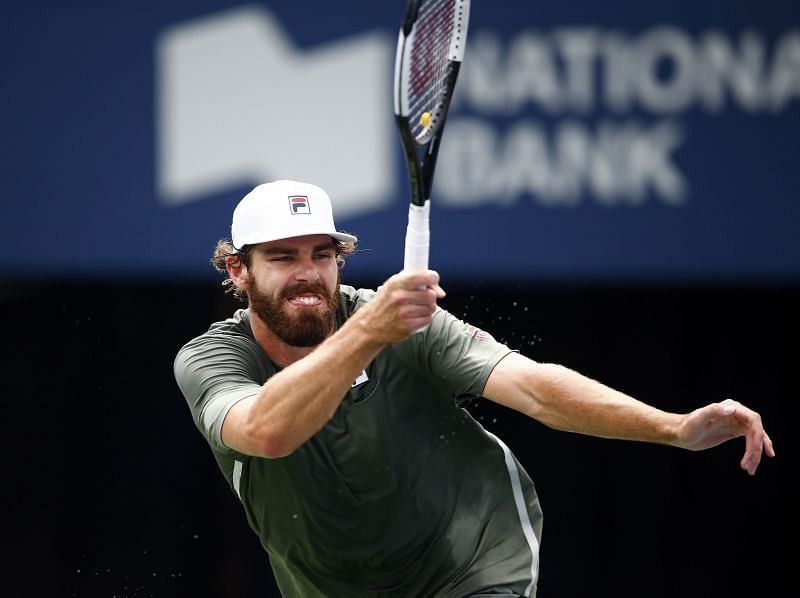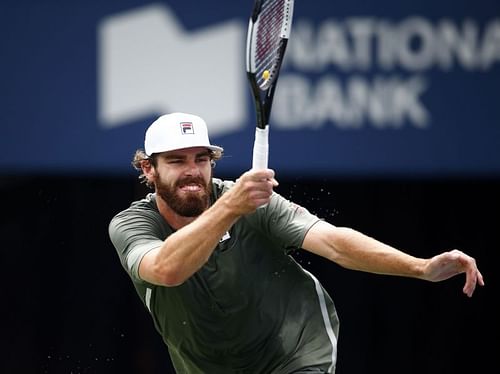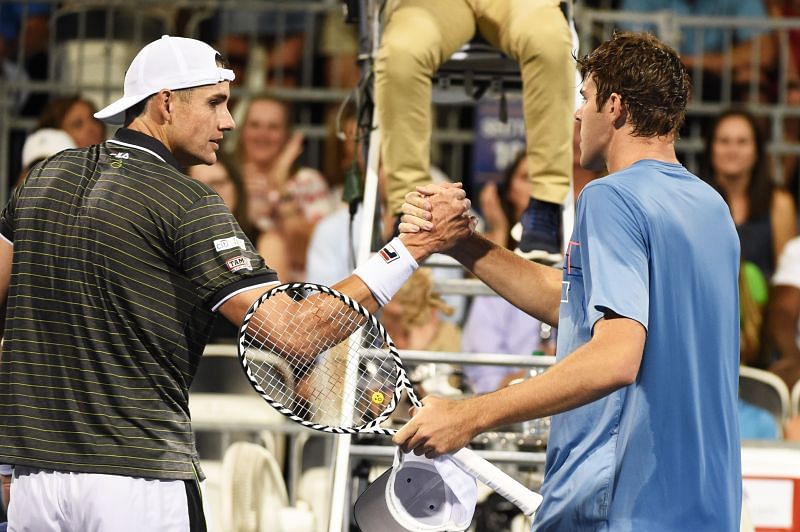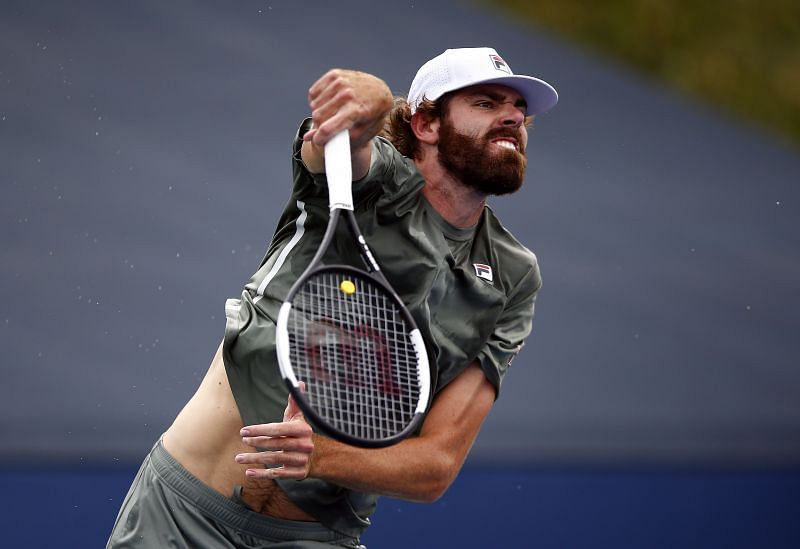
Reilly Opelka says tweeners "aren't that cool anymore", jokes that serve-bots are a "little bit miserable to watch"

Reilly Opelka came up with yet another supreme serving performance on Saturday to dispatch Stefanos Tsitsipas in the semifinals of the 2021 National Bank Open. The American will face Daniil Medvedev in the final on Sunday.
Opelka served 17 aces and saved the only breakpoint he faced against Tsitsipas, outlasting the Greek in a thrilling two-and-a-half-hour contest.
Speaking to the media after his win, the American said he was happy with his overall performance, particularly his net play and composure.
"I volleyed really well, and especially on like big points. Even in that last game [...] I played an unbelievable backhand volley to get 30-Love, and then finished another one with an overhead," Opelka said. So I think -- and down breakpoint a volley winner -- I really was clutch with not only my serve but with my volleys in the big moments."
The marathon encounter featured plenty of aces and powerful winners from both ends of the court, but one of the biggest highlights was the incredible tweener Opelka hit mid-way through the first set.
The American ran back towards the ball and hit a no-look shot between his legs from well behind the baseline. Unfortunately for him, Tsitsipas was alert and put away an easy volley.
When asked about the shot in his press conference, Opelka joked that he had no other option. He also downplayed its importance, saying tweeners have become increasingly common and "aren't even cool anymore."
"I mean, that was my only option from there. I joke around, like, it's kind of somewhat a highlight, but tweeners are so common now," Opelka said. "I always say they are so mainstream. They're not even that cool anymore, because everyone hits them."

During the press conference, Opelka also commented on the term "serve-bot", which has often been used in a derogatory manner to describe big-servers like himself.
Apart from Opelka, the likes of Ivo Karlovic, John Isner, Kevin Anderson, Milos Raonic and even Nick Kyrgios have been labeled "serve-bots" because the serve is the most dominant feature of their game.
Opelka provided his own definition of the term, jokingly saying that "serve-bots" have to be "miserable to watch". According to the American, Kyrgios does not qualify as he has the ability to entertain fans with a wide variety of shots.
"Isner and I were joking around about what the definition of a servebot is, because we were joking, like is Kyrgios considered first team all-bot? Because he holds serve a lot. The stats kind of point towards him holding a lot, and it's considered a possible potential first team all-bot," Opelka joked.
"Right now Isner is first team. I'm first team. Karlovic is first team. Raonic, and I think Kevin Anderson. Kyrgios makes a case for it, but we kind of came to the conclusion today that servebots have to be a little bit miserable to watch, and he's too exciting, too fun to watch, so he doesn't fall under the full first team servebot category (smiling).
"Every player has had adversity at some point in their career" - Opelka on his difficult path to the top

Opelka has made giant strides on the ATP Tour the past couple of seasons, and will have a chance at getting his hands on the biggest title of his career when he faces Daniil Medvedev in the Toronto final on Sunday.
When asked to shed some light on his journey to the top, the American reflected on some of the "dark" days that he had to endure during his early years as a professional.
"I mean, the darkest day of tennis for me I remember too well, unfortunately, I was playing a challenger in Central America. It was red clay. The courts were like completely unplayable. I just remember Isner was playing in the finals of Miami against (Alexander )Zverev. We were stoked for him, stopping practice to check scores.
"Then like mid-tournament, they ran out of the tournament ball they were using, so we switched balls to a completely different brand. The court was like completely rugged. I was like, You know what? If I even try, I could roll an ankle. I was, like, I want out of here. I didn't even compete. I wasn't even frustrated with myself.
Opelka said the tournament "was unplayable" as they did not have food on-site or an area for players to cool off after a match.
"I just wanted to get out of there healthy. I remember just being livid, like I flew a coach, a physio, I invested in myself to do things the right way, and the tournament was unplayable, they didn't have food onsite, there was no indoor area to sit and hang out, it was all outside, he said. "Then Isner won, and I was stoked, but I was, 'Man, this is not the same sport that Zverev and Isner are playing'".
Opelka did, however, admit that his early experiences were "nothing special" as most professional athletes had to overcome adversity en route to the top.
"Every player has had adversity at some point in their career. Everyone has had a dark day. Every athlete, you know. So, yeah, mine is not as dark as others'. I'll say that," Opelka said. "There has been some really great stories from some guys that have turned nothing into something."